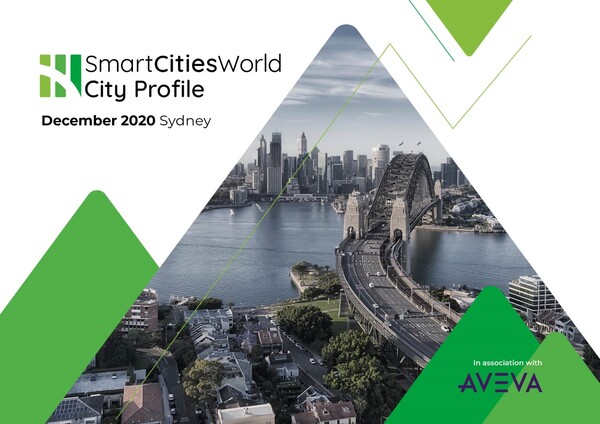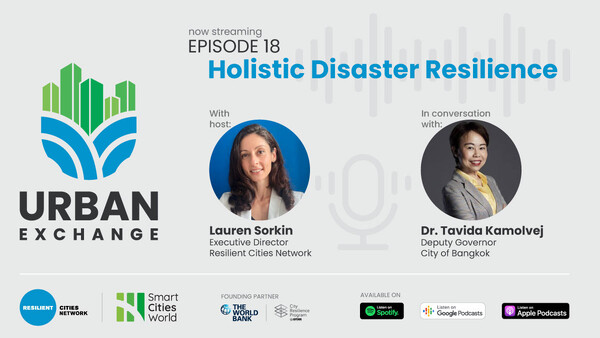Special Reports
SusHi Tech Tokyo 2024: experience ‘Tokyo 2050’ todaySponsored by The SusHi Tech Tokyo 2024 Showcase Program Executive Committee
Report calls for new regulation to 'rein in' big tech
Regulation of the digital world has not kept pace with its role in our lives, says the UK’s House of Lords Communications Committee.

The House of Lords Communications Committee is calling for a new, overarching regulatory framework to make big technology companies more accountable.
In its report, Regulating in a Digital World, published today, the committee notes that over a dozen UK regulators have a remit covering the digital world but there is no single body which has complete oversight.
Self-regulation “failing”
As a result, the report argues, regulation of the digital world is fragmented, with gaps and overlaps. “Big tech companies have failed to adequately tackle online harms,” it says, adding that responses to growing public concern have been "piecemeal and inadequate".
The Committee is recommending a new Digital Authority, guided by 10 principles to inform regulation of the digital world.
The Committee is recommending a new Digital Authority, guided by 10 principles to inform regulation of the digital world. This authority would co-ordinate regulators, continually assess regulation and make recommendations on which additional powers are necessary to fill gaps. It would report to a new joint committee, whose remit would be to consider all matters related to the digital world.
The chairman of the House of Lords Communications Committee, Lord Gilbert of Panteg, said: “The Government should not just be responding to news headlines but looking ahead so that the services that constitute the digital world can be held accountable to an agreed set of principles.
“The Government should not just be responding to news headlines but looking ahead so that the services that constitute the digital world can be held accountable to an agreed set of principles."
“Self-regulation by online platforms is clearly failing and the current regulatory framework is out of date. The evidence we heard made a compelling and urgent case for a new approach to regulation.
“Without intervention, the largest tech companies are likely to gain ever more control of technologies which extract personal data and make decisions affecting people’s lives. Our proposals will ensure that rights are protected online as they are offline while keeping the internet open to innovation and creativity, with a new culture of ethical behaviour embedded in the design of service.”
The 10 recommended principles are:
- Parity: there should be the same level of protection online as offline
- Accountability: processes must be in place so that individuals and organisations are held to account for their actions and policies
- Transparency: powerful businesses and organisations operating in the digital world must be open to scrutiny
- Openness: the internet must remain open to innovation and competition
- Privacy: measures should be in place to protect the privacy of individuals
- Ethical design: services must act in the interests of users and society
- Recognition of childhood: the most vulnerable users of the internet should be protected
- Respect for human rights and equality: the freedoms of expression and information online should be protected
- Education and awareness-raising: people should be able to navigate the digital world safely
- Democratic accountability and proportionality
The UK government has two months to respond to the recommendations of the Committee and the report will then be debated in the House of Lords.
Change is coming?
The move comes at a time of growing concern around issues such as movements and communications being monitored, shared and sold without consent; ‘black box’ algorithms making unaccountable decisions; social media being used as a tool for harassment and hate speech; and democratic processes being undermined.
Other countries are moving to address some of the issues raised by the House of Lords Committee. Earlier this week, France’s Minister of Economy and Finance put forward a bill to tax internet companies such as Google, Amazon, Facebook and Apple.
Bruno Le Maire’s proposal would tax the digital sector’s leading companies 3% of their digital turnover made in France from January 1 2019.
The tax specifically targets digital platform companies (that is companies that receive commissions for connecting customers and companies, rather than selling their own products directly) and online advertising – in particular, activities related to advertisement targeting and resale of personal data for advertising purposes.
Cities start to take a stand
The need to bolster rights in the digital world is going up the smart city agenda too. Late last year, Amsterdam, Barcelona and New York City launched the Cities Coalition for Digital Rights. The joint initiative will promote and track progress in protecting residents’ and visitors’ digital rights.
The cities will develop policies, tools and resources in line with the Charter for Human Rights and Principles for the Internet, established by the UN’s Internet Governance Forum around five core shared principles, namely:
- Universal and equal access to the Internet and digital literacy
- Privacy, data protection and security
- Transparency, accountability and non-discrimination of data, content and algorithm
- Participatory democracy, diversity and inclusion
- Open and ethical digital service standards
Around the same time, 42 cities, including Barcelona, Amsterdam and New York, also agreed to 10 principles for the platform economy – to enable cities to take advantage of the benefits of platform models while avoiding negative effects around labour rights, data sovereignty and more.
You might also like:


















